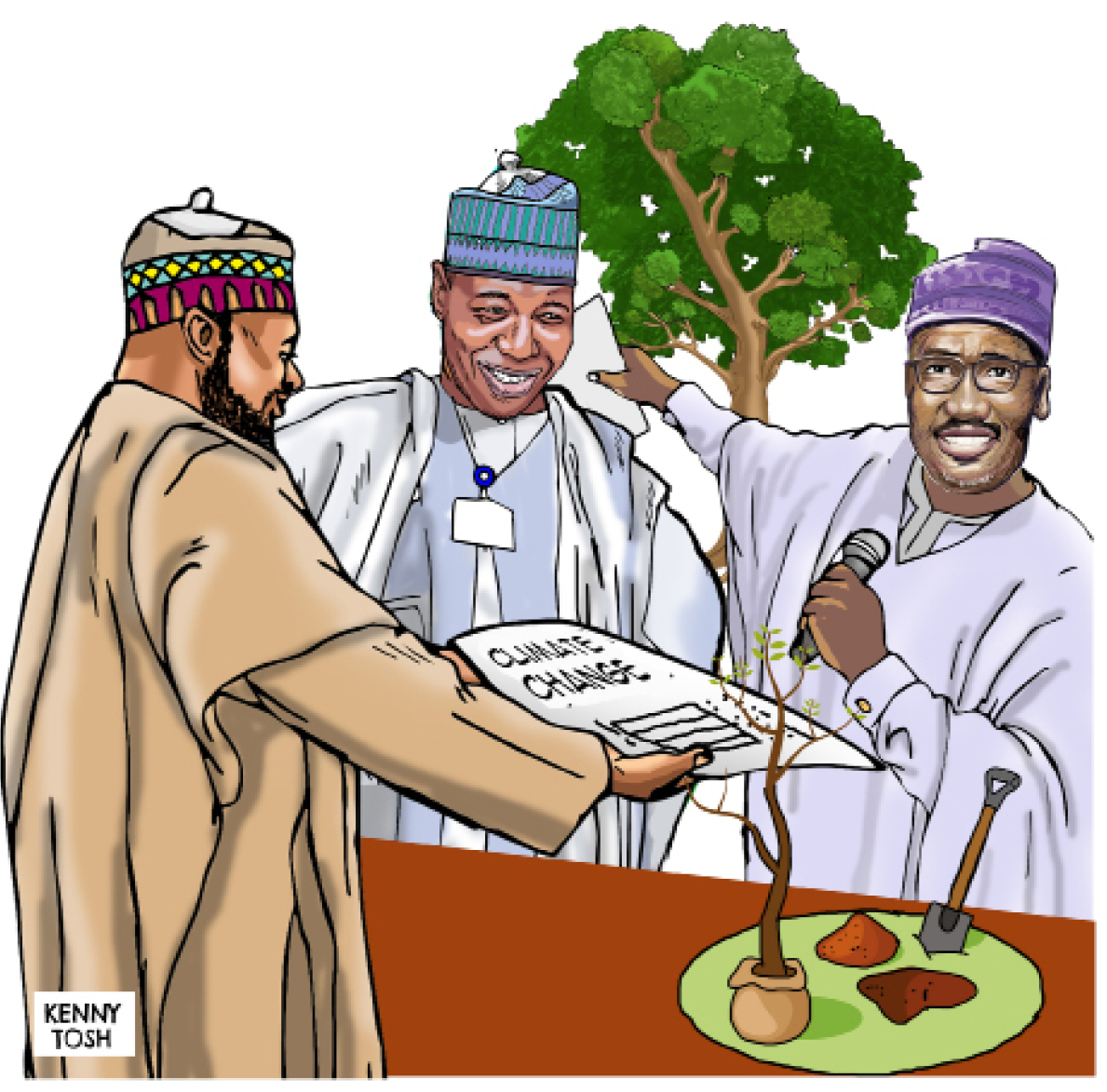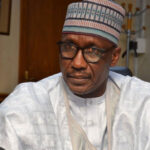Between October 24 and 25, 2023, at the Idris Legbo Kutigi International Conference Centre in Minna, a groundbreaking event took place that united governors, executives, and environmental advocates under one roof for a common cause – the fight against climate change. The first sub-national green summit in Nigeria, organized by the Niger State Government led by Governor Umar Mohammed Bago, represented a monumental step towards a greener, more sustainable future.
On the first day of the exhibition, the 200MillionTrees stand was a beacon of green hope, attracting numerous top executives and functionaries. Among them were Governors Zulum and Bago, two prominent figures whose interest in tree planting was both evident and encouraging. Many people who saw the pictures of Zulum at our stand said that he was obviously calculating how he would execute tree planting in Borno State. As for my Governor, Bago, he is probably the only person who can match my obsession with trees. He even announced that he would give one million naira each to the first 1,000 youth and women to plant trees.
In our discussions at the stand, I took the opportunity to explain how our initiative seamlessly aligns with 11 of the Sustainable Development Goals (SDGs). Unlike conventional approaches, our focus extends beyond just planting trees. We’re actively choosing locations where the trees won’t fall prey to the usual rural destruction. Schools, estates, farms, and religious and public parks will be the nurturing grounds for our forests, ensuring that local communities take ownership and pride in their upkeep.
On the second day of the exhibition, Governor Umar Mohammed Bago and NNPC’s Vice President of Gas, Power and New Energy, Olalekan Ogunleye, graced our stand. They listened intently as I highlighted the pressing need to restore Nigeria’s lost 60% forest cover. The startling contrast between Africa’s minimal 3% contribution to global carbon emissions and its significant representation among the countries most affected by climate change was not lost on them. Out of the 20 countries most severely impacted by climate change, 16 are in Africa.
- AfDB, others vote additional $1bn to fund agric businesses in 24 states
- Barcelona forced to lean on youth in Madrid Clasico battle
The NNPC’s Vice President’s grasp of the climate situation was impressive. He told us that they were meeting this week to discuss their climate action plans including tree planting. He also offered me his card for further discussion.
During one of the panel discussions, I addressed the urgency of our situation. Lake Chad was my reference point—a once-mighty water body that has now been reduced to a mere shadow of its former self. In the 1960s, Lake Chad was a source of livelihood for 40 million people across Niger, Nigeria, Cameroon, and Chad (the NNCC countries). Today, the lake has shrunk to less than 2,000 square kilometers, largely due to poor management and the impacts of climate change.
This drastic reduction has fueled competition over the dwindling resources, resulting in social ills such as highway robbery, kidnapping, and banditry. It has also provided a ready pool of disillusioned youth, easily recruited by extremist groups like Boko Haram.
Among the sea of participants and organizers, I had the unique privilege of donning three significant hats, each representing a vital facet of the collective journey towards a greener future.
Firstly, I was an integral part of the Governor’s Green Committee, where I had the honor of chairing the Subcommittee on Sustainability and Green Materials for the Summit. In collaboration with my fellow committee members, we took a monumental step in actualizing our green dreams by establishing two forests. These were not just any forests; they were symbols of hope and commitment. The President Tinubu Indigenous Plants Forest (where we planted 32 indigenous varieties) and the Governor Bago Food Forest (with 26 varieties of fruit trees) stand testament to our dedication to replenishing our planet’s green cover.
Secondly, as mentioned above, I served as a panelist during the summit, where I had the opportunity to directly address the participants, urging them to take immediate action. Citing the tragic tale of Lake Chad, I highlighted the dire consequences of inaction. Our planet, much like Lake Chad, is in peril, and it is up to us to rescue it from the clutches of climate change.
Lastly, wearing the hat of a mobilizer, I rallied my team at 200MillionTrees to set up an exhibition stand. This stand was not just a display; it was a testament to our commitment to the cause. It served as a tangible representation of our dedication to combatting climate change through afforestation.
In conclusion, I emphasized to the governors and other participants that we must be the architects of our salvation. No external force is coming to our aid. Planting forests is a crucial step in this self-redemption. The benefits are numerous, including stabilized rainfall patterns, improved groundwater availability, enhanced agricultural productivity, and ultimately, food security for all. Let’s not wait any longer. The time to act is now!
PS: HE Professor Zulum, you showed interest in 200MillionTrees but we forgot to exchange contracts. We will love to bring (for free) our unique food forest design to Borno State which is an improvement over the model of Akira Miyawaki. You can reach me through Governor Bago or the Daily Trust.

 Join Daily Trust WhatsApp Community For Quick Access To News and Happenings Around You.
Join Daily Trust WhatsApp Community For Quick Access To News and Happenings Around You.


